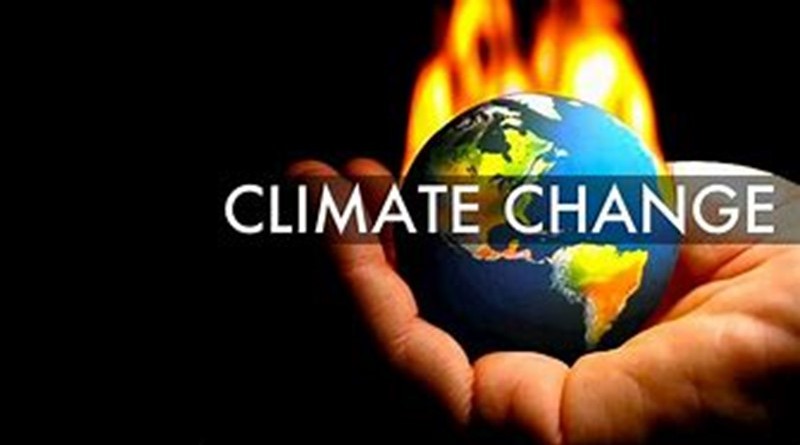Climate Change: Africa loses 15% GDP per capita annually, says Kevin Urama – Chimaobi Agwu
According to Kevin Urama, vice president and acting chief economist of the African Development Bank Group (www.AfDB.org), Africa has been losing 5 to 15% of its GDP per capita growth as a result of climate change and its effects. However, in order to meet its nationally determined contributions between 2022 and 2030, Africa will need about $1.6 trillion.
In a panel discussion titled “African Countries Ownership in Determining Climate Agenda” that took place on the fringes of the Egypt International Cooperation Forum (www.EgyptICF-AfricanMinisters.com) (Egypt-ICF 2022) on Wednesday in Cairo, Urama urged developed countries to close the “climate financing gap.”
At the event, the bank was represented by a number of top executives, including Dr. Kevin Kariuki, vice president for power, energy, climate change, and green growth, and Mr. Solomon Quaynor, vice president for the private sector, infrastructure, and industrialization. Between 2016 and 2019, “African countries collectively only received $18.3 billion in climate finance,” Urama claimed. This causes a $1288.2 billion annual increase in the climate funding gap from 2020 to 2030.
“These sums reflect how the crisis is,” the head economist continued. Africa suffers greatly from climate change despite producing only 3% of global emissions. The international community must fulfill its pledge of $100 billion to assist the economy of poor nations and Africa in reducing the effects of climate change and adapting to it. The best way to deal with the effects of climate change is to invest in climate adaptation within the framework of sustainable development, and gas must continue to be included in the continent’s plan for the gradual switch to clean energy.
Urama emphasized that since the 1850s, nations have been able to move away from coal and toward greener forms of energy. Additionally, he reaffirmed that the private sector, particularly banks, could take advantage of the enormous potential for green investment opportunities in Africa.
Yasmine Fouad, Egypt’s Minister of the Environment, emphasized Egypt’s National Strategy for Alignment for climate reduction and adaptation. It has five main pillars, she claimed.
The first pillar, according to Fouad, “concentrates on how we may adopt a low greenhouse path, which centers on the sectors around renewable energy for transportation, gas, industrial, and trash. The second one concerns adaptation and the best way to increase community resilience. The third and fourth ones concentrate on improving accessibility to and availability of water, as well as coastal zone protection. The last one is the stereotypical climate policy and it talks about the need for more intelligent and integrated formulations.
Fouad continued, “To combat climate change, you cannot rely on the government alone, nor the private sector alone; rather, it requires an integration of the three.”
Women and young people are among Africa’s best assets, according to Ghada Wally, Executive Director of the United Nations Office on Drugs and Crime and Director-General of the United Nations Office in Vienna. She stressed the significance of looking into ways to capitalize on this significant asset for the sake of the sustainable development of the continent.
Note: Nationally Determined Contributions or “NDCs” are submitted by countries under the Paris Agreement of the United Nations Framework Convention on Climate Change. They represent climate action pledges that aim to limit global warming to well below 2 degrees C, to 1.5 degrees C, over pre-industrial levels.



